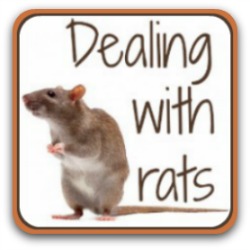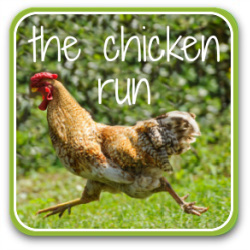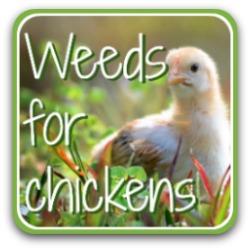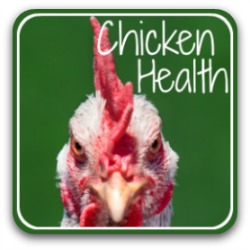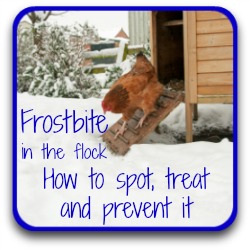Bird flu: what is it and could it affect your chickens?
So you've heard on the news that there's been another outbreak of avian influenza and you're worried about its impact on your backyard flock.
Or perhaps your friends and neighbours have been asking questions to which you don't know the answers. Questions like:
- What exactly is it?
- What are the symptoms?
- Can it be treated in infected flocks?
- Can it be transferred to humans?
- What are the symptoms in humans?
- What treatment options are possible?
- How can it be prevented?
- What other sources of information are most helpful?
Use any of these links if you're looking for specific information. Otherwise - read on!
Please note: this article does not constitute medical or veterinary advice. If you're worried about human or animal health, you should arrange to see a doctor or veterinarian.
What is bird flu, what's its background and how does it spread?
It's complicated. As with many viruses, strains are constantly evolving and patterns differ according to geographical area and seasons. The following information is vastly simplified - but as much we need to know to help keep our flocks safe.
- Also known as "avian influenza", it's basically a form of flu. More technically, it's classed as a "zoonotic virus" which means it's a virus normally carried in animals - or in this case, birds - which can be passed to humans.
- Bird flu is known to be carried and spread largely by wild birds, in particular shore birds like gulls, and waterfowl such as ducks and geese. It's a particular risk to backyard chicken flocks at times when wild birds migrate for the winter.
- Infected birds carry the virus in their digestive and respiratory tracts and spread it from their saliva, nasal secretions and droppings. Other birds become infected when they come into contact with those secretions, or any surface where they've been left.
- There are dozens of variations of bird flu. The most common and highly contagious known to affect chickens are strains known as H5N1 and H7N9.

How does bird flu affect chickens?
There are two distinct strengths of bird flu:
- Low Pathogenic Avian Influenza (LPAI)
- Highly Pathogenic Avian Influenza (HPAI).
Both can spread very quickly through flocks but, as the names suggest, LPAI has less of an effect on chickens than HPAI. Sadly, LPAI can and does often turn to HPAI.
Transmission of LPAI is the most common type to affect backyard flocks initially. It causes very mild symptoms which you may not even notice.
 This bird is hunched and clearly unwell. But does she have avian influenza?
This bird is hunched and clearly unwell. But does she have avian influenza?You might see your birds sitting hunched, looking a bit dejected, with ruffled feathers.
You may notice a drop in egg production, or more soft-shelled eggs being produced.
But of course those symptoms can be signs of many different types of problems.
HPAI, on the other hand, causes major disease affecting chickens' internal organs.
It causes death within about 48 hours and the mortality rate is between 90% and 100%.
In other words, the HPAI type of bird flu is fast, and it's always fatal.
What are the signs of the HPAI bird flu type in chickens?
Symptoms of the highly pathogenic form of avian influenza include:
- A distinctive blue colour of the neck and throat
- Swollen head
- Discharge from the eyes and nose
- Respiratory distress such as panting, coughing, sneezing, gurgling and a gaping beak
- Diarrhoea
- Loss of appetite
- Fewer or no eggs
- Death.
Can avian influenza in chickens be treated?
The simple answer is "no" - even with the Lower Pathogenic strain.
The problem is that LPAI can and does evolve into the HPAI type(1). Both are highly contagious. So any form of avian influenza is considered potentially fatal, not only to the infected flock but to others nearby.
There's no treatment. Once bird flu is identified as active, the entire flock must be culled. There are no halfway measures here.
Nearby flocks, including backyard chickens, will be kept under scrutiny and quarantined if there's any possibility that they have also become infected.
 If chickens show symptoms, the flock will have swabs taken to test for bird flu.
If chickens show symptoms, the flock will have swabs taken to test for bird flu.How does bird flu spread to people?
As with other types of influenza, spread to humans is mainly caused by contact with an infected source. In other words, if you have contact with an infected chicken you may be prone to contracting bird flu.
The more contact you have over a longer time, the more likely you are to get the disease.
It's rare, but not unknown.
Transmission is through breathing in infected droplets from the air or from dust, or by coming into contact with infected birds, droppings, bedding or other surfaces, and then touching your eyes, nose or mouth. It's that simple.
It's not possible to catch bird flu from eating properly cooked chicken or eggs. Eating infected birds, of course, is another matter.

Can it kill humans? The strains common in Europe, America and Australia have not been known to kill people. Other strains in Asia and Africa have.
As with any form of influenza, those most vulnerable are the young and elderly, people already fighting chronic illnesses, pregnant women and those involved in responding to outbreaks of the disease who can be exposed to it for prolonged periods.
What are the symptoms of bird flu in humans?
The incubation period in humans is generally ten days but can be as long as 17. If you've come into contact with infected birds you should monitor your health for at least ten days.
Human signs to watch for are "typical" flu symptoms:
Fever - a temperature over 38ºC (100ºF)
Coughing
Shortness of breath, or difficulty breathing
Sore throat and/or vomiting
A runny nose, or bouts of sneezing
Headaches and muscle aches
Conjunctivitis - red, itchy, tearing eyes
Extreme tiredness; a feeling of being "washed out".
Can avian influenza in humans be treated?
There's no vaccine for bird flu, and the normal 'flu vaccine isn't effective against it - they're different strains. There's some very limited evidence that antiviral drugs can reduce the length of time symptoms last, but trials are still ongoing.
The most effective way to treat bird flu is to stop it happening in the first place.
How to prevent bird flu.
General precautions.
- Avian influenza is a "notifiable disease" in the UK. If there are any symptoms in your flock which may be connected, you should inform the appropriate government department (see "Sources").
- If there is an outbreak of avian flu you'll find that any officially scheduled shows, exhibitions and markets are banned until the disease is controlled.
 The National Poultry Show in the UK - it will always be cancelled should there be an outbreak of avian flu.
The National Poultry Show in the UK - it will always be cancelled should there be an outbreak of avian flu.- Take note of this and never try to enter your chickens for a local poultry show if there has been any indication of bird flu - no matter how much the organisers might try to tell you it's perfectly safe!
Keeping your own flock safe.
- Practice good husbandry. Remember: even apparently healthy birds can carry the Low Pathogenic variety of bird flu.
- As far as possible, keep wild birds out of your chicken run. They will often come looking for food, so invest in a feeder which doesn't allow them in (it will save you money in lost feed, too!). And always clear up spilled grain.
 One of my young Wyandottes eats from my Grandpa's automatic feeder without spraying grain everywhere.
One of my young Wyandottes eats from my Grandpa's automatic feeder without spraying grain everywhere.- Don't mix water fowl with chickens. If you have your own water birds - ducks and geese, for example - make sure their pond doesn't attract wild birds. Be aware of migration times and be on the lookout for wild birds taking up residence.
- If necessary, put fencing around the coop and run to keep chickens in, or round the pond area to keep waterbirds in. Add netting over the pond so migrating birds are not attracted by water.
- Keep your coop and run clean, wear a mask when you're handling bedding and always wash your hands after you've handled your chickens or any feeders, waterers, surfaces and so on.
- Something like this mask is fine, it doesn't need to be a surgical type. As long as it prevents dust from getting into your nose and mouth, it's fine.
- (Links in this section are affiliate links, which means if you purchase through them I receive a small commission from Amazon at no extra cost to you).
- Keep a bottle of hand sanitiser in your coop if you don't have running water. A minimum of 60% alcohol will help manage various diseases.
- Something like this, which has 70% alcohol balanced by added moisturiser, is good.
- Keep paths and walkways clean, removing droppings and disinfecting at least weekly.
- Control rodents. There's no evidence that rats can carry bird flu, but they may spread it across infected surfaces.
- Always put new birds into isolation for at least ten days before allowing them contact with the rest of the flock. Check for any signs of illness during that time.
- Keep the number of people moving in and out of your run to a minimum, and clean any footwear that's come into contact with droppings.
- If you have any large commercial chicken farms near you, keep an ear open for indications of outbreaks of bird flu or any other disease.
- Conditions in these farms, which often pack hundreds of thousands of birds into a small area, are often dire and disease regularly starts there and spreads in the neighbourhood.
 Large, commercial flocks are often kept in poor conditions and more vulnerable to disease, including bird flu.
Large, commercial flocks are often kept in poor conditions and more vulnerable to disease, including bird flu.Travelling abroad.
- If you're travelling to countries which are known to have had outbreaks of avian flu, particularly Asia and Africa, avoid markets where live birds are sold and don't eat street food which includes any type of poultry.
- In those same countries, avoid contact with poultry farms or any areas where poultry are slaughtered, and don't handle birds you might see in the street.
- Practice good hygiene. Wash your hands often, particularly if you come into contact with poultry. Take a hand sanitiser with you in case you don't have access to clean water. Make sure it contains at least 60% alcohol. These travel sized bottles are easily carried in a pocket or purse.
Bird flu: registration and national controls.
In the UK, backyard flocks must be registered if they contain 50 or more birds. The Department of the Environment (DEFRA) suggest that smaller flocks be registered too, so that keepers can be warned if there are any outbreaks - but that's optional.
This is a link to the DEFRA registration form.
In the USA, "surveillance" varies from state to state. Certainly if you're concerned about the possibility of your chickens having contracted bird flu, you should contact your state veterinarian. Unlike the UK, however, there is no formal registration scheme.
Similarly there is no formal registration required in Australia. Backyard flock concerns should be reported to the Chief Veterinary Officer of your state or territory.
Other articles you may find useful.
Sources and further reading.
1. Centers for Disease Control and Prevention, USA. Avian Flu. Pub. March 2019, updated regularly.
2. US Department of Agriculture: Avian Influenza. Pub. 2017, updated regularly.
3. Australian Government, Department of Agriculture: Avian influenza or Bird Flu. Pub. 2019, updated as the disease requires (the disease is largely contained in Australia).
4. UK Government: Avian Influenza (Bird Flu). Pub 2017, updated regularly.
5. World Health Organisation: Influenza (Avian and other zoonotic). Pub. November 2018.
6. Science Direct: Low Pathogenic Avian Influenza Virus. Pub. 2011.




